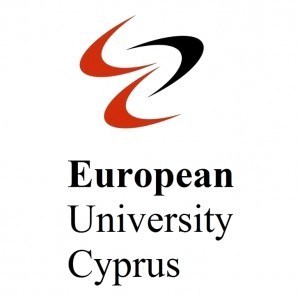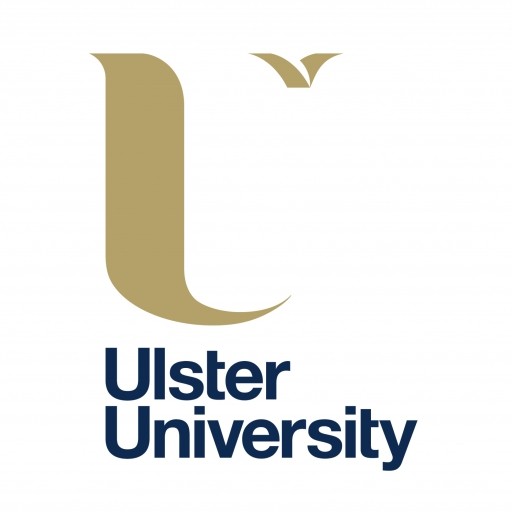Photos of university / #europeanunicy
The Bachelor of Science in Information Systems at European University Cyprus is a comprehensive undergraduate program designed to prepare students for the dynamic and rapidly evolving field of information technology. The program combines core principles of computer science, business, and management to equip graduates with the essential skills needed to design, implement, and manage effective information systems within various organizational contexts. Throughout the course of study, students acquire a solid understanding of programming, database management, systems analysis and design, network administration, cybersecurity, and enterprise architecture, enabling them to contribute to the digital transformation of businesses and institutions. The curriculum emphasizes practical applications and real-world problem-solving, providing opportunities for internships and collaborations with industry partners to gain hands-on experience. Students also develop critical thinking, analytical skills, and the ability to adapt to technological innovations, ensuring they are well-prepared for careers in information systems management, IT consultancy, systems analysis, and other related fields. The program benefits from the university’s state-of-the-art facilities, experienced faculty, and strong industry links, fostering an environment of academic excellence and professional development. Graduates of the program are expected to meet the growing demand for skilled IT professionals in Cyprus and beyond, contributing to technological advancement and business efficiency across various sectors. With a multidisciplinary approach, the BSc in Information Systems at European University Cyprus aims to produce capable, innovative, and ethically responsible professionals ready to face the challenges of today’s digital world.
The Bachelor of Science in Information Systems at European University Cyprus is a comprehensive academic program designed to equip students with the essential knowledge and practical skills required to excel in the rapidly evolving field of information technology and systems management. The program aims to blend theoretical foundations with practical applications, preparing graduates to effectively analyze, design, implement, and manage information systems in various organizational contexts.
Throughout the course of study, students are introduced to core concepts in computer science, software development, database management, and networking. The curriculum emphasizes understanding the architecture and functionality of information systems, enabling students to develop innovative solutions that improve business processes and support strategic decision-making. In addition, students gain proficiency in programming languages, system analysis and design, and cybersecurity principles, ensuring they are well-versed in current industry standards and practices.
The program also focuses on the strategic role of information systems within organizations, covering topics such as enterprise resource planning (ERP), customer relationship management (CRM), and business intelligence. Courses in project management, data analytics, and ethical and legal issues related to technology prepare students to lead projects effectively and address ethical considerations in the digital age. The curriculum is designed with a practical orientation, often involving hands-on projects, internships, and collaborations with industry partners to provide real-world experience.
Students will develop critical thinking, problem-solving, and analytical skills necessary to assess organizational needs, recommend technological solutions, and manage the implementation process. The program fosters teamwork and communication skills, enabling graduates to work effectively within multidisciplinary teams and communicate technical topics to non-technical stakeholders. Upon graduation, students will be prepared to pursue careers in systems analysis, IT consultancy, software development, network administration, and other roles within the information technology sector.
Overall, the Bachelor of Science in Information Systems at European University Cyprus offers a rigorous academic path that combines technical expertise with strategic understanding, positioning graduates for successful careers in the dynamic world of information technology and business. The program is committed to fostering innovation, ethical awareness, and continual learning, ensuring that students are well-equipped to adapt to ongoing technological advancements and industry needs.
Program Requirements for BSc in Information Systems at European University Cyprus:
Applicants to the Bachelor of Science in Information Systems program must hold a valid secondary education diploma or equivalent, with demonstrated proficiency in Mathematics and English. Prospective students are required to submit official transcripts of their secondary education, illustrating a strong academic record, particularly in mathematics, sciences, and computing-related courses. Additionally, applicants must provide proof of English language proficiency through standardized tests such as IELTS with a minimum score of 6.0, TOEFL with a minimum score of 78, or equivalent certifications recognized by the university.
Admission also considers the applicant’s motivation and interest in the field of Information Systems, assessed through interviews or personal statements where applicable. The university values candidates with analytical thinking, problem-solving skills, and an aptitude for technology. For mature students or those without formal qualifications, relevant work experience and prior technical training may be considered during the admissions process.
International students must also meet the university's visa and health insurance requirements. Non-native English speakers must demonstrate language proficiency unless they have completed their secondary education in English-medium institutions.
Once admitted, students are expected to complete a set of foundational courses in mathematics, programming, database systems, and information technology, followed by advanced modules in systems analysis, cybersecurity, and data communications. Participation in practical training, internships, and project-based assessments is compulsory to ensure practical competency alongside theoretical knowledge.
Students must also fulfill credit hour requirements, which include coursework, research projects, and a final capstone project. Continuous assessment is part of the evaluation process, with students expected to maintain a minimum grade point average to remain in good academic standing. Specific prerequisites for elective modules may include core courses in programming or mathematics.
The program aims to prepare graduates for careers in IT consultancy, systems analysis, network administration, and software development, equipping them with both technical expertise and managerial skills necessary in the ever-evolving field of information systems.
The Bachelor of Science in Information Systems at European University Cyprus offers a diverse range of funding options to support students throughout their academic journey. Primarily, students can benefit from various scholarships based on academic merit, financial need, and specific eligibility criteria such as Cyprus residency or participation in designated programs. These scholarships aim to reduce the financial burden and enable talented individuals to pursue their degrees without undue hardship. Additionally, the university collaborates with public and private financial institutions to facilitate student loans with favorable terms, including low-interest rates and flexible repayment plans. The university also encourages students to seek external funding sources, such as government scholarships, Erasmus+ mobility grants, and other international programs, which can cover tuition fees and living expenses. European University Cyprus maintains an active financial aid office that provides guidance and support to prospective and current students regarding available funding opportunities, application procedures, and deadlines. Furthermore, some programs may include work-study options or part-time employment opportunities within the university, allowing students to earn income while studying. The university is committed to fostering an accessible and inclusive learning environment, ensuring that qualified students from diverse backgrounds can pursue their education without financial barriers. Overall, the financing studies available aim to make higher education in Information Systems feasible for a broad population, emphasizing accessibility, support, and flexibility tailored to the needs of students.
The Bachelor of Science in Information Systems at European University Cyprus is a comprehensive undergraduate program designed to equip students with a solid foundation in both computer science principles and business practices. The program aims to develop competent professionals capable of analyzing and designing information systems that drive organizational success in various sectors. The curriculum covers a wide range of topics including programming, systems analysis and design, database management, cybersecurity, networking, and enterprise solutions. It emphasizes practical skills through hands-on projects, internships, and laboratory work, ensuring graduates are job-ready upon completion. Students also gain critical understanding of how information technology can be leveraged to improve business processes, enhance decision-making, and create innovative solutions. The program fosters analytical thinking, problem-solving, and teamwork, which are essential in the dynamic field of information systems. Additionally, students have opportunities to specialize in areas such as software development, data management, or cybersecurity based on their interests and career aspirations. The faculty comprises experienced instructors and industry experts who bring real-world insights into the classroom. European University Cyprus supports students with modern facilities, including computer labs and research centers, to facilitate effective learning. Graduates of this program often pursue careers as systems analysts, IT consultants, database administrators, and project managers, working in various industries including finance, healthcare, government, and technology firms. The program also provides a pathway for postgraduate studies for those interested in further specialization or academic careers. Overall, the Bachelor of Science in Information Systems at European University Cyprus prepares students for the rapidly evolving technological landscape by combining theoretical knowledge with practical application, fostering lifelong learning and adaptability in a competitive global environment.







